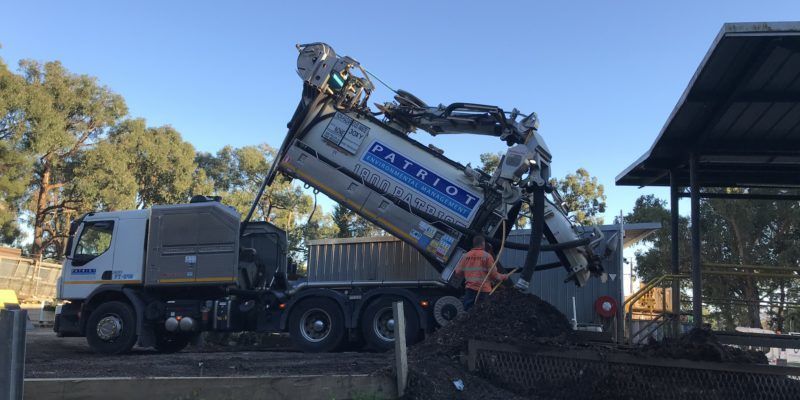Innovation and Efficiency: Future Trends in Waste Disposal Facility Management
As we consciously move into the era of sustainability and environmental awareness, the focus on efficient and innovative waste management has taken center stage. What does this shift mean for waste disposal facility management? How can we re-imagine and redesign this critical sector to minimize environmental impact while maximizing efficiency? This blog post delves into the future trends of waste disposal facility management, underpinning the role of innovation and efficiency in this evolving landscape.
The conversation around waste management is no longer a side story. It is now front-and-center in our discussion of societal and environmental health. From households to corporations, everyone has a part to play in this critical global issue.
But what does innovation look like in relation to waste management facilities, and how can efficiency be effectively achieved without compromising service provision? These are the pivotal questions we aim to address. Sit tight as we journey through this enlightening exploration of the future of waste disposal facilities.
The Increasing Importance of Waste Management
Our world is grappling with a staggering amount of waste annually. Each of us, as inhabitants of this shared space, has a role to play in mitigating this issue. The management of waste disposal facilities has a broader responsibility. It’s not just about collecting and disposing of waste, but also about strategizing more comprehensive systems for reducing waste, promoting recycling, and maximizing the use of resources.
Environmental Concerns:
a. Resource Conservation: Proper waste management helps in the conservation of valuable resources such as energy, water, and raw materials by promoting recycling and reusing.
b. Reducing Pollution: Inadequate waste disposal can lead to soil, air, and water pollution. Effective waste management mitigates these environmental hazards.
c. Mitigating Climate Change: The decomposition of organic waste in landfills produces methane, a potent greenhouse gas. Proper waste management, including composting and biogas generation, helps reduce these emissions.
Health and Safety:
a. Disease Prevention: Poor waste management can result in the spread of diseases through the contamination of water sources and the breeding of disease-carrying vectors. Proper disposal and sanitation practices protect public health.
b. Worker Safety: Managing waste often involves manual labor, and without proper safety measures, workers can be exposed to health risks. Adequate waste management ensures the safety of those involved in the process.
Economic Benefits:
a. Resource Recovery: Efficient waste management can recover valuable materials from waste streams, reducing the need to extract and manufacture new resources. This can lead to cost savings and revenue generation through recycling and reusing.
b. Job Creation: The waste management industry provides employment opportunities, from waste collection and transportation to recycling and waste-to-energy operations.
Why Innovation Is Required
The current systems serving our waste management needs are neither efficient nor sustainable. Aging infrastructures and outdated management methodologies are exacerbating our global waste issue. Innovative practices help increase efficiency, cut down costs, and drastically reduce the environmental impact.
Exploring Innovative Trends
In the quest for innovation, concepts like smart waste management, robotics, waste-to-energy conversion, and circular economy models are emerging as game-changers. These trends present a promising blend of technology, data, and sustainability and offer an enhanced, holistic approach to waste management.
The Efficiency Conversation
Improving efficiency is a universal objective, irrespective of the industry or sector. And it is no different in the realm of waste management. Optimal utilization of resources, operational efficiency, and cost-effectiveness are areas where tweaks and improvements can make a significant difference.
Pros and Cons of Innovative Trends
While the innovation-led changes in waste management seem promising, they do come with their set of challenges. It's important to consider the pros and cons these trends bring along, such as costs, technological entries, or threats to jobs, to assure an informed transition.
The Role of Policy and Stakeholders
The role of policy and stakeholders in promoting and implementing these innovative practices is crucial. Understanding this dynamic is key to a successful transition to more efficient waste management systems.
Conclusion
In conclusion, waste disposal facility management is an essential service that needs urgent and strategic attention. Innovative intervention and focus on efficiency can indeed bridge the gap between our present circumstances and our future aspirations for a more sustainable world. Close coordination between various stakeholders, along with forward-thinking policies, would act as catalysts in this transformation.
As we initiate this dialogue, let's remember that technology and innovation are just enablers. The key to sustainable waste management lies in our collective consciousness about our choices, our actions, and the impact they have on this planet we call home.









No comments :
Note: Only a member of this blog may post a comment.